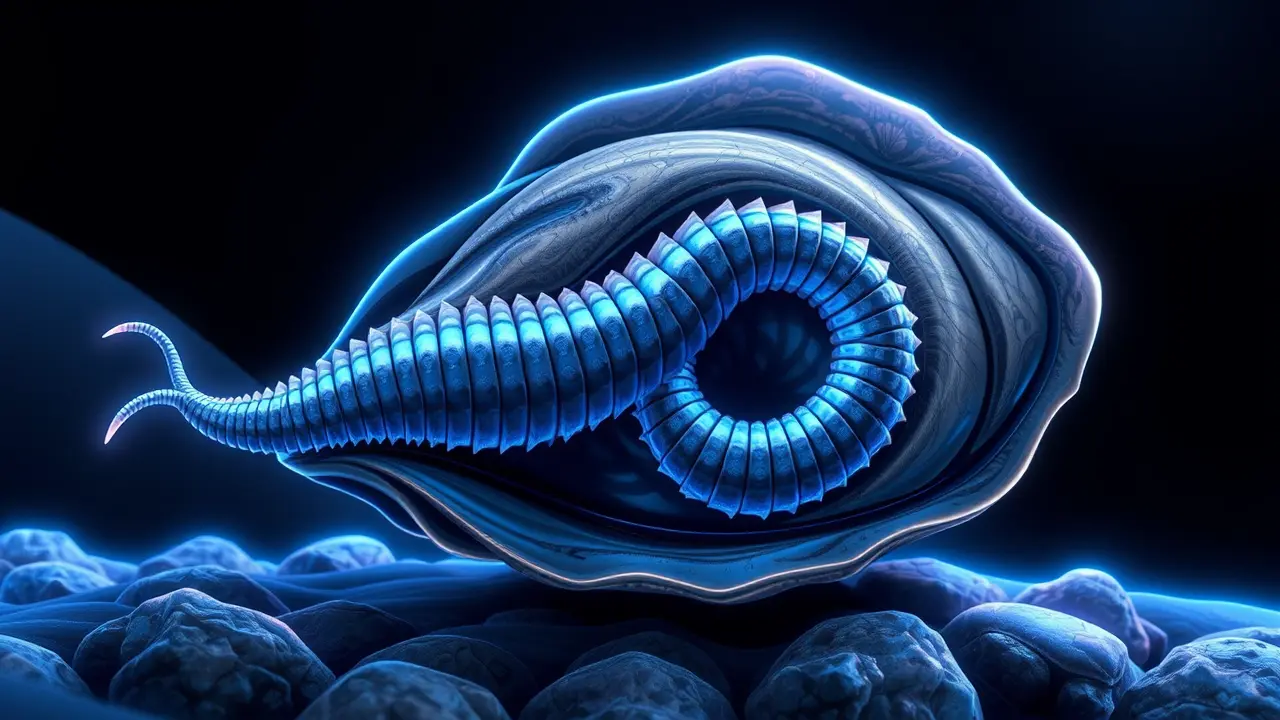
Sciencearchaeology
A 480-million-year-old parasite still infects oysters today
RA
Rachel Adams
7 hours ago7 min read1 comments
In a discovery that bridges deep time with present-day ecological concerns, researchers have unearthed fossil evidence revealing that the parasitic relationship between spionid worms and oysters has persisted, utterly unchanged, for a staggering 480 million years. This finding, emerging from high-resolution scans of ancient bivalve shells, shows the same distinctive, question mark-shaped burrows that these worms carve into their hosts today—a ghostly signature of a biological arms race that began during the Ordovician period.For a biologist focused on the delicate interplay of climate and ecology, this is more than a paleontological curiosity; it is a profound testament to the enduring, and often brutal, forces of nature. While our planet's climate has undergone cataclysmic shifts and continents have drifted apart, this specific parasitic behavior has remained a constant, a relentless pressure on marine life that has survived multiple mass extinction events.It forces us to consider the resilience of such ecological relationships in the face of modern anthropogenic threats. Today, oyster populations are already under siege from pollution, ocean acidification, and overharvesting.The added, ancient stressor of spionid infestation, which can stunt growth and compromise shell integrity, presents a compounded challenge for conservation and aquaculture efforts. This fossil evidence acts as a stark reminder from the deep past: these relationships are foundational, woven into the very fabric of marine ecosystems.They are not easily undone, and as we alter the ocean's chemistry and temperature, we are tampering with systems whose rules were written half a billion years ago. The unbroken line from these ancient parasites to their modern counterparts underscores a critical narrative in ecological science—that the most persistent challenges to biodiversity are often not the new, invasive threats, but the ancient, co-evolved ones that have been perfected by eons of evolutionary pressure. Understanding this deep history is not merely an academic exercise; it is essential for forecasting how these foundational species and their parasites will respond to the unprecedented changes we are imposing upon the world's oceans.
#featured
#spionid worms
#parasite
#oysters
#fossil evidence
#ancient behavior
#paleontology
#marine biology
Stay Informed. Act Smarter.
Get weekly highlights, major headlines, and expert insights — then put your knowledge to work in our live prediction markets.
© 2025 Outpoll Service LTD. All rights reserved.